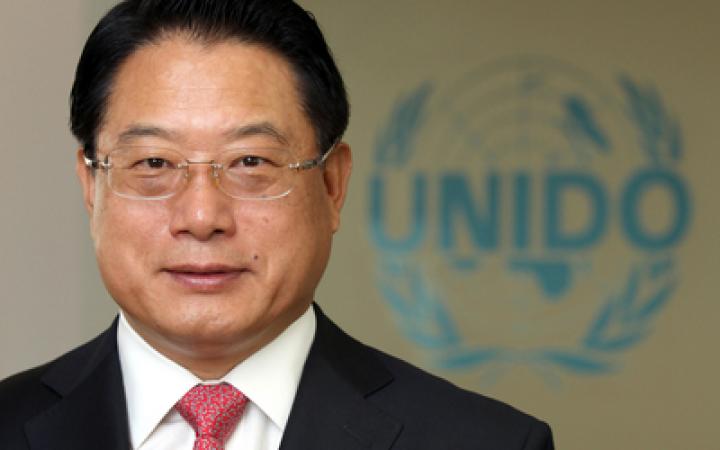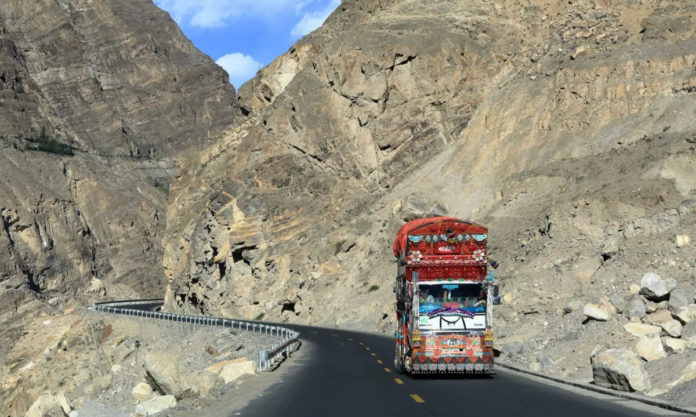It will be an oversimplification to say that the current era is of geo-economics, at best geo-economics are striving to find a reasonably safe passage through the planet’s overly geo-politicized and securitized landscape. Even though one wishes that geo-economics take precedence over geo-politics, requisite processes have a long way to go. One Belt One Road (OBOR) is struggling to find its way to envisioned destinations. An early operationalization of China Pakistan Economic Corridor (CPEC) last year, a flag ship project of OBOR has provided stimulus for early completion of remaining OBOR, which is a multi-trillion dollar programme spread over, may be, a century. Like a tree of dates, it real fruits would be enjoyed by the next generation in terms of prosperity and life style.
Some Western diplomats have expressed unease as they perceive the initiative as a venture to promote Chinese influence globally. It has been reported that probably attendance by Russian president Putin and some other leaders whose countries have a poor Human Rights track record, like the Philippines and Central Asian states, may have induced a reluctance amongst leaders from the Western countries to skip the event. “What Western leader wants to sit on the same stage as Putin?” said one senior Beijing-based Western diplomat. “Everyone wants to be China’s friend now with Trump in office,” a Beijing based senior diplomat opined.
China has rejected these views, saying the scheme is “open to all, is a win-win, and aimed only at promoting prosperity”. “We will not export our system of society and development model, and even more will not impose our views on others,” President Xi said. “What we hope to create is a big family of harmonious co-existence,” he added.
United Nations General Assembly adopted the 2030 Agenda for Sustainable Development; Sustainable Development Goal 9 (SDG 9) aims to “build resilient infrastructure, promote inclusive and sustainable industrialization and foster innovation.” OBOR-CPEC combine is in line with this goal, leading towards joint cooperation.
While attending the OBOR summit, Prime Minister Nawaz Sharif said on May 14 that the CPEC under the OBOR was open to all countries in the region that the project “must not be politicized.” “Let me make it very clear that CPEC is an economic undertaking open to all countries in the region. It has no geographical boundaries. It must not be politicized,” the Prime Minister said while addressing the plenary session of high-level dialogue on Belt and Road Forum in Beijing captioned “Cooperation for Common Prosperity.”
However, geopolitical galore, India boycotted the global event citing reservations on the CPEC route passing through Gilgit-Baltistan that India claims to be a disputed territory. The Prime Minister’s statement was apparently a response to Indian concerns and opposition. The event was attended by 29 heads of states and governments; over 1500 delegated participated. “It is time we transcend our differences, resolve conflicts through dialogue and diplomacy, and leave a legacy of peace for future generations… “The OBOR signifies that geo-economics must take precedence over geo-politics, and that the centre of gravity should shift from conflict to cooperation,” Nawaz said.
Peace and development go hand in hand, and economic development facilitates peace and security through multilateral and multidimensional cooperation. OBOR-CPEC would be an important process leading towards a win-win situation for all participants. However, this point is not home to India because its China and Pakistan policies are hinged on zero-sum calculus; and for this India is being handsomely rewarded by America and its allies because their perceptions are driven by geo-political considerations.
OBOR would promote “inclusion and tolerance” and have positive impact on life style of poor and disadvantaged segments of societies of three continents that OBOR envisions to connect, as a bonus point it would dilute the extremist and terrorist tendencies. Unfolding of the programme has already begun to radiate the message of inclusion, tolerance and acceptance.
CPEC aims to connect the catchment areas of South Asia, West Asia and Central Asia. If India joins it then East Asia would as well have the chance to connect. Pakistan is poised to become a cross-regional pass way as well as destination, a prospect which is not easy for India to digest. Nawaz Sharif expressed confidence that the historic event would build critical pathways in the years to come for economic and financial cooperation, business-to-business collaboration, and people-to-people contacts. With or without India OBOR-CPEC is here to stay and flourish.

According to the Director General of United Nations Industrial Development Organization (UNIDO), Li Yong, the Belt and Road Initiative is the most impressive development project of the century, creating significant potential for joint cooperation between China and the United Nations. The initiative “aims to build communities of political mutual trust, economic integration and cross-cultural accommodation through peaceful and active development and collaborative economic partnerships along the Belt and Road,” Li said in an interview. The initiative reflects the “pillars of inclusive and sustainable development and plays an important role in promoting the construction of infrastructure”, Li added.
The outreach of Belt and Road initiative spans around 65 countries representing 60 percent of the world population and around a third of global gross domestic product. It is a vehicle for promoting industrialization in developing and least developed countries through international industrial capacity cooperation. Its key features are: solving the problem of financing infrastructure and reflecting the spirit of inclusive and sustainable development. Pakistan admires China’s vision and ingenuity in developing corridors across regions.
Infrastructure development requires substantial capital investment. Asian Infrastructure Investment Bank, Silk Road Fund and BRICS Development Bank, etc., have already indicated their willingness for financial undertaking. And during the summit, President of China Xi Jinping committed US $124 billion for the OBOR. He also announced additional 100 billion yuan for “Silk Road Fund”, alongside Yuan 380 billion loan from two Chinese banks, plus 60 billion Yuan in-aid to “developing countries and international institutions in new Silk Road countries”. He also pledged Yuan 300 billion to enable financial institutions to “expand their overseas Yuan fund businesses”. China will launch 100 “happy home” projects, 100 poverty alleviation projects and 100 health care and rehabilitation projects in countries along the Belt and Road. For smooth handling of CPEC related financial matters, Bank of China is setting up its first branch in Pakistan.
While things are progressing well with regard to forward movement of CPEC programme, the worrisome point is the gradual relapse of Balochistan into CPEC related violence. The recent cold blooded murder of labourers working for Gwadar Port project indicate that foreign funded subversive elements continue to have the capability of carrying out such attacks, more intriguing were the recent comments by Daniel Coats, director of National Intelligence during his congressional testimony: “The emerging China Pakistan Economic Corridor will probably offer militants and terrorists additional targets.” A Chinese man and his wife who teach Chinese at a local language center were abducted from Quetta. It shows that even Chinese personnel not related to core CPEC projects stand vulnerable for abduction to create pressure points and to send across a message of insecurity to the Chinese government and people. Last year, a Chinese engineer was injured in a bomb attack in southern Pakistan and a separatist group, the Sindhudesh Revolutionary Army, claimed responsibility for the attack, saying they were targeting the CPEC. Pakistani government has deployed 15,000 military personnel to CPEC related activities. The CPEC is like every other investment programme where opportunities and risks co-exist.
In the meanwhile, Beijing on May 25 dismissed a UN body’s report which warned that the CPEC could create tension with India and fuel political instability. China said the report by Economic and Social Commission for Asia-Pacific (ESCAP), a development arm of the United Nations (UN) wasn’t specifically on the CPEC and had evaluated the BRI in a very positive way. The report has said that CPEC could lead to “further political instability” in the region and “create geo-political tension with India as it passes through PoK”. India skipped the Belt and Road Forum in Beijing last week primarily because of “sovereignty” issues over CPEC “passing through PoK”. Foreign ministry spokesperson Lu Kang dismissed the UN’s concerns. “As for CPEC passing through the controversial territory, I have said this many times, it is an economic initiative and it will not affect our position on the Kashmir issue,” Lu said. Though Prime Minister’s participation in the summit alongside four Chief Ministers is a heartening sign indicating that at the domestic level differences stand resolved, the external doubters haven’t given-up nor are they likely to give up any time soon. There is a need to deny the space for local tools of external saboteurs.




